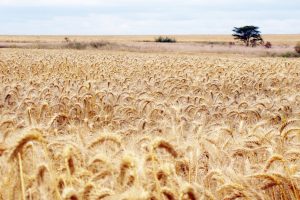
“… [we] think back to the parable of the sower. We know the parable, but we can re-read the words of the Gospel over and over again and still find new light. So the sower comes out to sow. As he sows, some seeds fall on the path, some on rocky ground, some among thorns, some finally on good soil, and only these last gave fruit (cf. Mt 13:3-8).
Jesus did not limit himself to presenting us with a parable, he explained it. Let us hear then the explanation of the parable of the sower. The seeds that fell on the path represent those who hear the word of the Kingdom of God but do not understand it. The Evil One comes and takes away what has been sown in their hearts (cf. Mt 13:19). The Evil One often uses this tactic and he tries to prevent the seed from germinating in people’s hearts. This is the first comparison. The second is the seed fallen on rocky ground. This ground represents the people who hear the word and welcome it immediately with joy, but they do not have roots in them and are inconstant. When tribulation or persecution comes because of the word, they fall away immediately (cf. Mt 13:20-21). What psychological insight in this comparison made by Christ! We know well from our experience and the experience of others the inconstancy of people deprived of the roots which would enable the word to grow! The third case is the seed fallen among thorns. Christ explains that he is thinking of those who hear the word but who, because of the worries of the world and their attachment to riches, stifle the word so that it does not bear fruit (cf. Mt 13:22).
Finally, the seed fallen on fertile ground represents those who hear the word and understand it, and the word bears fruit in them (cf. Mt 13:23). All of this magnificent parable speaks to us today as it spoke to the listeners of Jesus two thousand years ago. In the course of this world meeting of youth, let us become the fertile ground which receives the Gospel and bears fruit!
4. Bearing in mind that the human soul hesitates to welcome the word of God, let us address the Spirit with this ardent liturgical prayer:
Veni Creator Spiritus
Mentes tuorum visitas,
Imple superna gratia,
Quae tu creasti pectora.
Come, O Creator Spirit,
Visit the souls of those who belong to you;
Fill with your grace from on high
The hearts which you have made.
In this prayer we open our hearts, imploring the Spirit to fill them with light and life.
Spirit of God, make us ready to receive your visit. Make faith in the word which saves grow in us. Be the living source of the hope which blossoms in our lives. Be in us the breath of love which transforms us, and the fire of charity which impels us to give ourselves to the service of our brothers and sisters. …”







